This document discusses the duties and ethics of lawyers in India. It covers:
1) The origin and development of the legal profession in India from British courts in the 17th century to the Advocates Act of 1961.
2) The composition, powers, and functions of State Bar Councils, which regulate lawyers and have powers like admitting lawyers and disciplining misconduct.
3) An advocate's duties towards the court (respecting the court, not influencing judges privately), clients (not assisting illegal acts), and fellow lawyers (not using unfair means against opponents).

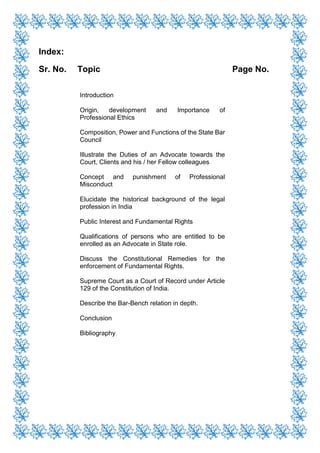

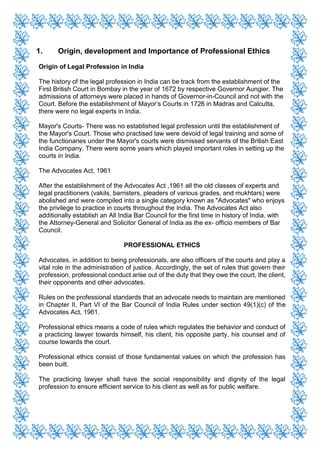
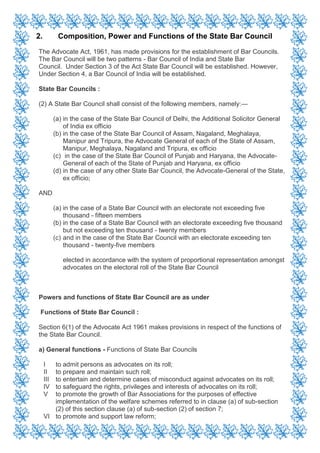
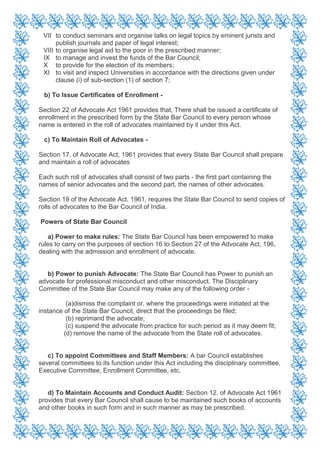
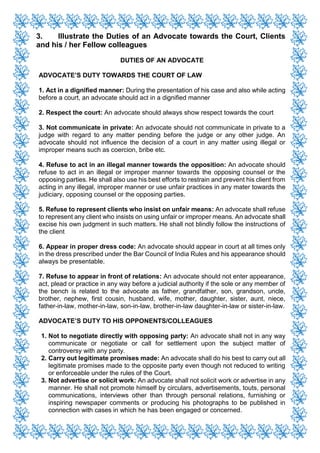
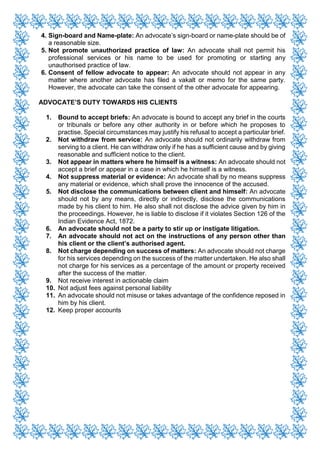
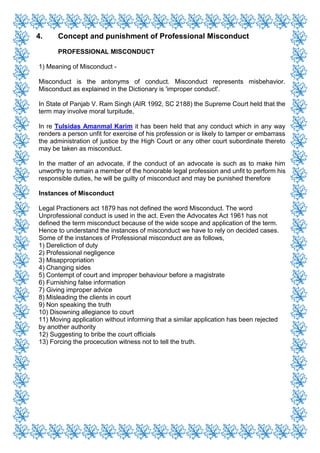


![6. Public Interest and Fundamental Rights
Fundamental Rights are the basic rights of the common people and inalienable rights
of the people who enjoy it under the charter of rights contained in Part III(Article 12 to
35) of Constitution of India.
The six fundamental rights recognised by the Indian constitution are
The right to equality – It includes equality before law, prohibition of discrimination on
grounds of religion, race, caste, gender or place of birth, and equality of opportunity in
matters of employment, abolition of untouchability and abolition of titles
The right to freedom – It includes freedom of speech and expression, assembly,
association or union or cooperatives, movement, residence, and right to practice any
profession or occupation, right to life and liberty, protection in respect to conviction in
offences and protection against arrest and detention in certain cases.
The right against exploitation – It prohibits all forms of forced labour, child labour
and trafficking of human beings.
The right to freedom of religion – It includes freedom of conscience and free
profession, practice, and propagation of religion, freedom to manage religious affairs,
freedom from certain taxes and freedom from religious instructions in certain
educational institutes.
The cultural and educational rights – It preserve the right of any section of citizens
to conserve their culture, language or script, and right of minorities to establish and
administer educational institutions of their choice.
The right to constitutional remedies. – It is present for enforcement of Fundamental
Rights. The right to privacy is an intrinsic part of Article 21(Right to Freedom) that
protects life and liberty of the citizens.[1]](https://image.slidesharecdn.com/434755403-upload-240317082048-4816ba88/85/434755403-Upload-pdf-practical-file-to-help-law-students-12-320.jpg)





